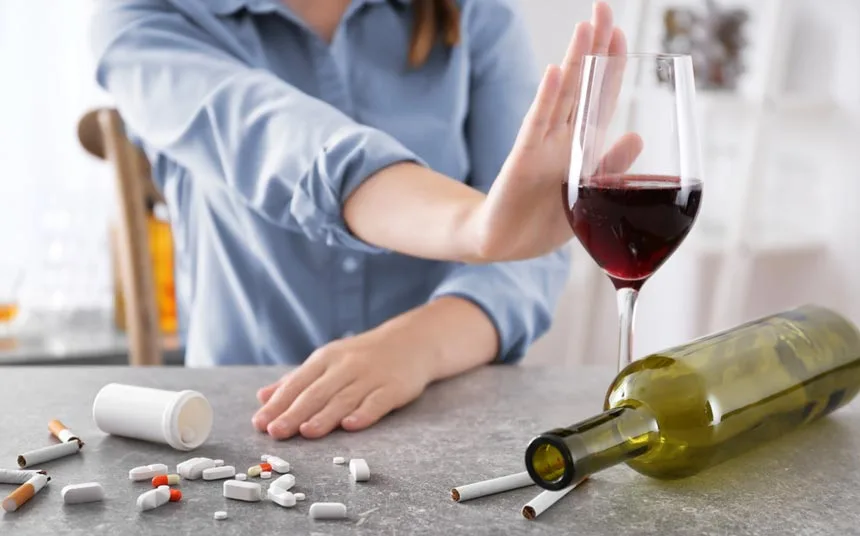Practical Advice on Getting Clean and Sober
Table of Contents
- Practical Advice on Getting Clean and Sober
- As You Stop Using Drugs, Know You’re Not Alone
- Why People Don’t Seek Professional Treatment for Substance Use Disorders
- What Quitting Drugs Feels Like
- Why Teenagers and Young Adults Start Drug Abuse
- How to Find the Best Rehab for Alcohol or Other Drugs and Start Drug Addiction Treatment
- Know Your Abuse Triggers and Cravings
- Recognize the Dangers of Self-Detox (Seek Help from the Pros)
- Treating Co-Occurring Disorders: Crucial to Addiction Treatment
- How to Find Support for Rehab and Addiction Recovery
- Rehab Helps You Learn How to Relieve Stress Without Drugs and Prevent Relapse
- Find Addiction Rehabs: Your Partner in Recovery
Drug abuse is a complex and devastating problem affecting millions worldwide. Despite the consequences, many individuals shy away from professional treatment for various reasons. These may include stigma, shame, fear of judgment, finances, or unawareness. You want to quit drugs, but you don’t know how. You might also be a family member or friend trying to help.
No matter the situation you’re in, keep reading to find the best advice we can offer on how to stop doing drugs!
As You Stop Using Drugs, Know You’re Not Alone

Knowing you are not alone is important when you or your loved one struggles with drug abuse. Also, remember that recovery is possible. You can stop using drugs.
Find Addiction Rehabs is a leading drug abuse treatment referral service. We provide a direct link to facilities that provide, accredited, compassionate, and evidence-based care to help clients achieve long-term sobriety.
We can help you. We’re here whether you abuse over-the-counter medications, illicit substances, or prescriptions. Getting help is as easy as picking up the phone, and all calls are HIPAA-compliant and completely confidential.
Why People Don’t Seek Professional Treatment for Substance Use Disorders
According to the National Institute on Drug Abuse, unfair stigma is a primary barrier to professional addiction treatment. Society often portrays addiction as a weakness or a moral failing. That makes individuals feel ashamed and shy about getting help.
Others want to quit drugs but fear judgment from their peers, family members, or employers. Instead, they hide their addiction and avoid seeking treatment.
Financial problems can also be a roadblock to receiving treatment for drugs. Many people lack insurance coverage or financial resources to pay for medical treatment. But most health insurance provides rehab coverage to help you become drug-free.
What Quitting Drugs Feels Like
Quitting drugs or alcohol is daunting. Withdrawal symptoms can vary depending on the type of drug. It also depends on the frequency and duration of use and other factors.
Common symptoms include the following:
- Anxiety
- Depression
- Irritability
- Insomnia
- Sweating
- Nausea
- Body aches
- Vomiting
- Headaches
Remember that withdrawal symptoms are temporary and manageable with medical supervision and support. Your health will improve after you quit drugs. Even better, you’ll be on your way to a clean slate.
Why Teenagers and Young Adults Start Drug Abuse

Drug abuse can affect individuals of all ages. But teenagers and young adults are particularly vulnerable to drug use and misuse. Peer pressure, curiosity, boredom, and stress contribute to drug use among young people. Also, young people may have less developed decision-making and impulse-control skills. That makes them more susceptible to addiction. It’s essential to educate young people about the risks of drug use. They must learn healthy coping strategies to manage stress and emotions.
Finally, they should spend time with a drug-free community of peers. They often have unsupervised free time or stay overnight with close friends who experiment with drugs. Their minds don’t fully understand the risk of addiction. They’ll use alcohol or other substances, not considering the outcomes. Before parents realize it, their child has a substance use problem and needs rehab to heal.
Quitting drugs is not easy at any age. The whole family must face this challenge. Family therapy can help heal parents, siblings, and grandparents when a child struggles.
At every age, the first step to overcoming drug abuse is recognizing the problem. Remember that addiction is a disease. Becoming drug-free requires professional treatment and support. The best treatment provider will use evidence-based care. They will also create a supportive environment to help clients achieve lasting recovery.
How to Find the Best Rehab for Alcohol or Other Drugs and Start Drug Addiction Treatment
Finding the best source of help for alcohol or other drugs can be challenging. But many facilities specialize in addiction care. We will help you and your loved ones find one who has experience treating clients with similar needs and offer confidential addiction help nationwide. It’s also essential to consider insurance coverage, treatment options, location, and availability.
Find Addiction Rehabs has a team of experienced and compassionate recovery representatives. We refer only to rehab centers that individualized care to help clients achieve lasting recovery. We can and will help you reach your long-term recovery goals.
Our treatment programs include:
- Medical detoxification
- Individual therapy sessions
- Holistic therapies
- Group therapy
- Aftercare services
A good recovery process supports clients in every stage of their recovery journey.
Know Your Abuse Triggers and Cravings
Addiction is a complex disease that involves both physical and psychological factors. Identifying and managing abuse triggers and cravings are essential for achieving lasting recovery.
Common triggers include stress, boredom, social pressure, and environmental cues. You’ll work with a qualified addiction specialist to develop healthy coping strategies. You’ll learn to apply these techniques to manage triggers and cravings.
Recognize the Dangers of Self-Detox (Seek Help from the Pros)
Self-detoxification or doing a “cold turkey detox” can be dangerous and life-threatening. That’s especially true for individuals with severe addiction or other medical conditions. Withdrawal symptoms can be unpredictable if you stop using drugs abruptly. Dangerous withdrawal symptoms like seizures, delirium, and cardiac arrest can occur without proper medical oversight.
Medically supervised detox provides 24/7 medical supervision. You can check in and begin a safe and comfortable detoxification process. The medical team monitors clients 24/7 for signs of distress. Providers can dispense prescription drugs to help reduce discomfort. They’ll also have other evidence-based interventions to assist.
Medically-supervised detox also provides emotional support. The detoxification process can be emotionally challenging. Clients may experience anxiety, depression, and confusion. Addiction specialists provide emotional support and guidance throughout detoxification. Their support helps clients manage emotions and overcome drug cravings.
As a result, clients feel more comfortable and confident during the detoxification process. That builds trust, setting the foundation for a successful recovery journey.
Treating Co-Occurring Disorders: Crucial to Addiction Treatment

A co-occurring disorder refers to a substance use disorder and another mental health disorder. You might also hear some call this a dual diagnosis. For example, a person may struggle with alcohol abuse plus depression. These conditions interact, making treatment more complex. Providers treat both conditions to achieve lasting recovery and improve quality of life. Professional help can help heal the root causes of substance abuse. They will provide comprehensive, integrated care.
Individuals with other mental health conditions often experience other symptoms and challenges. Each demands specialized care. Professional help can provide evidence-based therapies. These generally include the following:
- Cognitive-behavioral therapy (CBT)
- Dialectical behavior therapy (DBT)
- Holistic rehab approaches in treating co-occurring disorders.
These therapies help identify and manage triggers, develop coping strategies, and increase self-esteem.
Besides therapies, professional help can provide medication-assisted treatment (MAT) for related disorders. MAT involves the use of medications to manage withdrawal symptoms and cravings. It’s also good for reducing relapse rates and improving outcomes. Professional help can also provide ongoing support and aftercare services. They usually include group counseling, preventing relapse, and counseling. Each therapy can help clients maintain sobriety and mental wellness.
How to Find Support for Rehab and Addiction Recovery
A support group is a crucial component of addiction recovery. You must surround yourself with a supportive network of friends, family, and professionals. You need a solid support system, made up of those who understand your needs and will encourage you.
Support groups like Alcoholics Anonymous (AA) or Narcotics Anonymous (NA) can also be good resources. You’ll connect there with others with similar rehab stories. You will find a person or two who uniquely understands your challenges.
Rehab Helps You Learn How to Relieve Stress Without Drugs and Prevent Relapse

Stress is a common trigger for drug use and abuse. So developing healthy coping strategies to manage stress is essential. Exercise, meditation, mindfulness, and deep breathing can reduce stress and promote relaxation.
It’s also essential to focus on self-care. This concept includes some of the following behaviors:
- Getting adequate sleep
- Eating a healthy diet
- Drinking enough water each day
- Exercise or workout to improve your mood
- Engaging in activities that make you happy
- Making good health a priority
Relapse prevention is a common challenge in addiction recovery. Instead, consider it an essential learning opportunity to refine your long-term recovery strategies. This involves learning the following skills:
- Identifying triggers
- Developing coping strategies
- Creating a plan for managing cravings
- Avoiding high-risk situations.
Find Addiction Rehabs refers to facilities nationwide that provide comprehensive aftercare services.
Find Addiction Rehabs: Your Partner in Recovery
At Find Addiction Rehabs, the effective treatment programs all include medical detoxification, the crucial first step in recovery. This is the stage where a medical team provides 24/7 support to ensure a comfortable detoxification process.
Drug addiction can be an overwhelming problem. But it’s essential to know that help is available for your substance abuse. At Find Addiction Rehabs, we refer only to rehabs that provide compassionate, evidence-based care. Our goal? That our clients achieve lasting recovery and regain control of their lives.
Are you ready to stop taking drugs?
If you or a loved one wants to beat alcohol and/or drug abuse, don’t wait to seek help. Contact Find Addiction Rehabs today to learn more about our nationwide programs. It’s confidential.
It’s time to start your journey to begin a sober and fulfilling life, so reach out now!
Edward lives and works in South Florida and has been a part of its recovery community for many years. With a B.A. in English Literature from the University of Massachusetts, he works to help Find Addiction Rehabs as both a writer and marketer. Edward loves to share his passion for the field through writing about addiction topics, effective treatment for addiction, and behavioral health as a whole. Alongside personal experience, Edward has deep connections to the mental health treatment industry, having worked as a medical office manager for a psychiatric consortium for many years.

